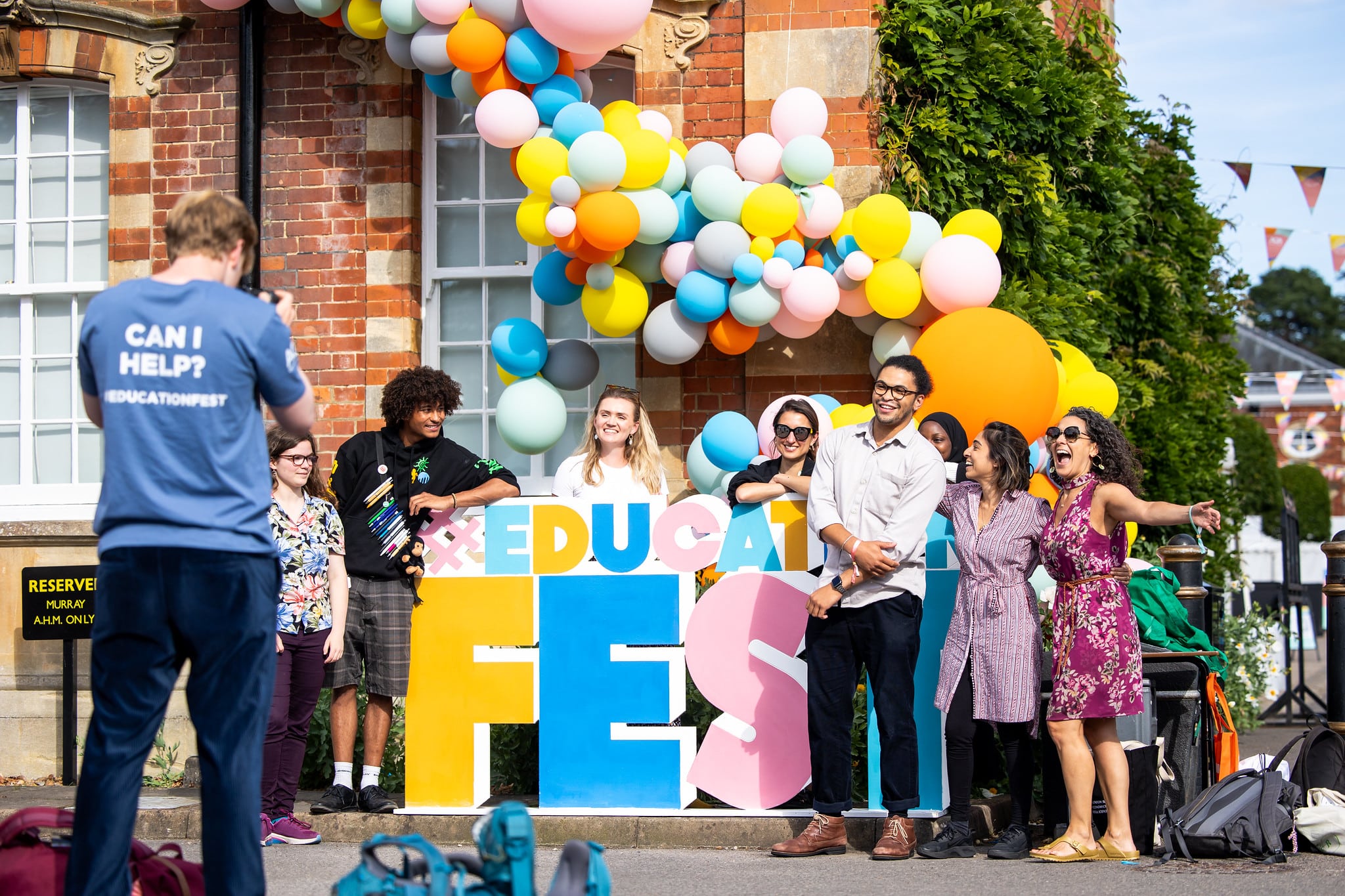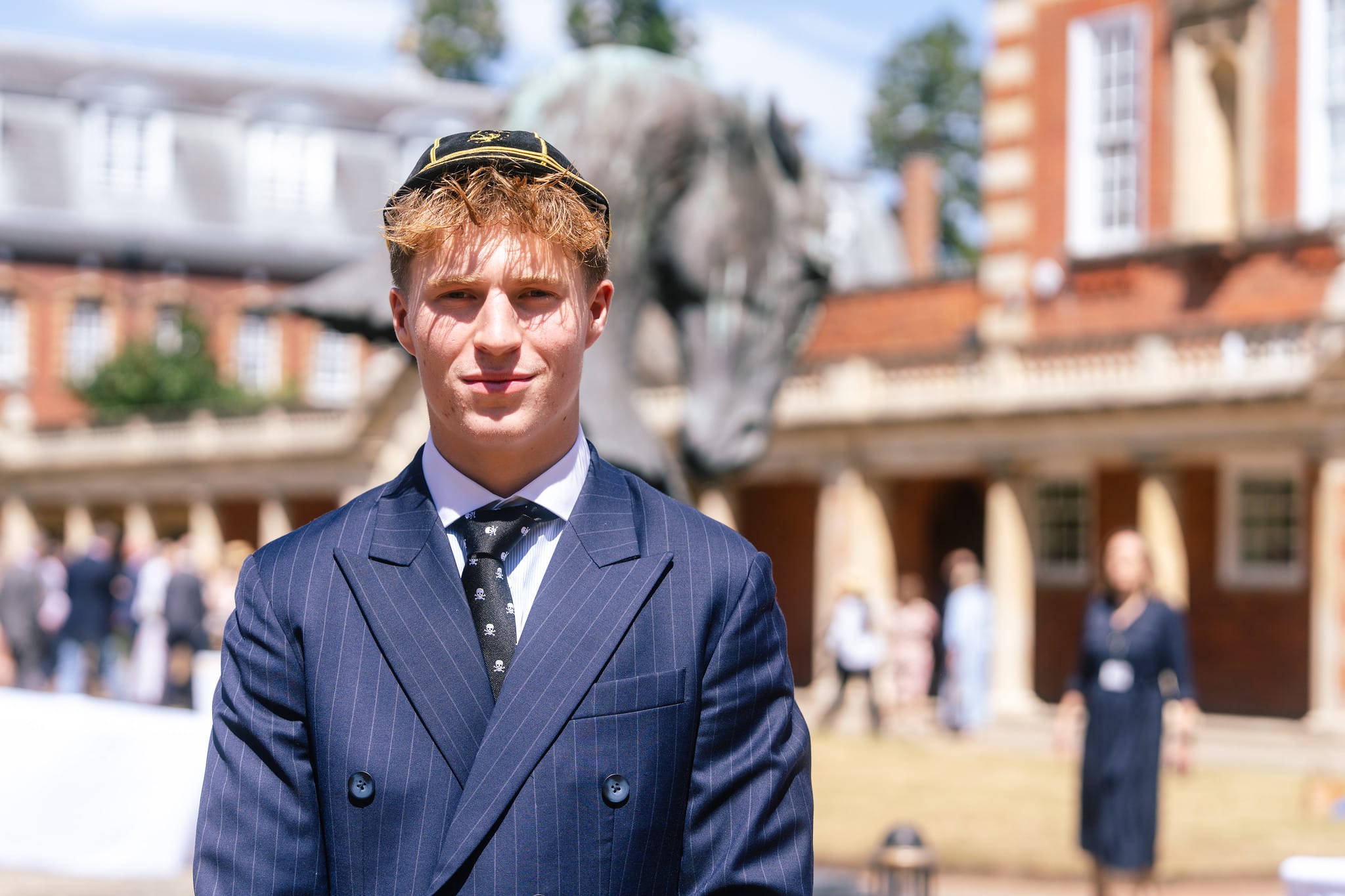
This year’s Festival of Education took place at Wellington College from 6-7 July with over 300 fascinating sessions delivered by more than 400 speakers across two inspiring days. While temperatures didn’t quite reach last years’ scorching standards, the sun shone and lively discussions flowed on topics as diverse as AI in the classroom, SEND, school inspections, EDI, teacher wellbeing, and sustainability in education. The keynote speakers drew huge crowds, particularly the inimitable Eddie Izzard, Amanda Spielman in her last address as Chief Inspector of Education and Chris Packham who gave a moving and personal talk about his undiagnosed autism.
Alongside the programme of speakers which attracted visitors from as far away as Australia, Bangkok and India, there were more than 4000 attendees that visited a plethora of exhibits including a large Sustainability Hub and the usual array of delicious food and drink stalls serving everything from pizza, Indian street food and ice creams, to coffee and cocktails. First time exhibitors like Google for Education and the Happy Confident Company swapped notes with seasoned festival regulars like BBC Bitesize and Education Development Trust
One of the first sessions on Thursday 6 July was ‘A Good Life – 5 Principles for a better SEND system’, hosted by Ben Newmark and Tom Rees. In a moving session, they explained how the current system isn’t delivering the outcomes needed and that by medicalising SEND and positioning it within a deficit narrative, we are denying certain children their dignity. Based on their powerful paper, ‘A good life’, published in partnership with the Ambition Institute, Ben and Tom outlined 5 principles for inclusion using examples from some pioneering educational settings. These included Frank Wise Community Special School in Banbury where Joint Head, Simon Knight has instilled a clear sense of belonging in pupils through community interactions. Pupils spend half a day each week in a mainstream school and take on work experience placements. Crucially, the local employers and mainstream pupils get to appreciate the value that Frank Wise pupils bring to their lives and organisations, demonstrating how encountering difference has entirely reciprocal benefits. Ben and Tom want to ensure that all children have access to a high-quality, enriching education that allows them to flourish as humans.
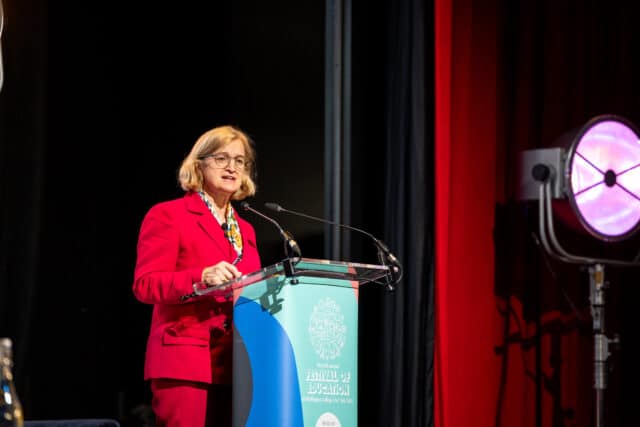
Amanda Spielman took to the main stage in the AQA Auditorium on Thursday for her final Festival address after nearly seven years as Chief Inspector of Schools. She began by acknowledging the sad death of Ruth Perry and highlighted the recent set of measures Ofsted have announced to improve how they work with schools. She then moved on to reflect on her first ever Festival of Education speech in 2017 in which she had set out her vision for education which “should be about broadening minds, enriching communities and advancing civilisation”. Her enduring passion for a quality curriculum shone through and she defended the curriculum’s ability to prepare pupils for the challenges and issues that face society today. Despite the many challenges of the pandemic, Spielman feels cautiously optimistic about the future of education as schools continue to recover what was lost to Covid and she emphasised that inspections demonstrate that the vast majority of schools are providing a good education. She urged the audience to encourage the next generation of teachers and emphasise the profound difference teachers make to young lives. John Dickens, Editor of Schools Week hosted a Q&A at the end of her address and closed by asking Amanda what single word grading she would give herself as Chief Inspector. A question she politely declined to answer!
Next up on the main stage was Dr Angela Herbert MBE to discuss whether or not we’ve learned lessons 30 years on from Stephen Lawrence’s murder. In an impactful and interactive session, she challenged the audience to question whether the education system is institutionally racist and emphasised ‘the power of one’ to drive change through anti-racist practice, whether that’s by calling out racist behaviour or calling in reflections, quieter conversations and mutual understanding. From teaching assistants, to heads and governors, the audience came away knowing that we all have the power to make a difference and act as role models within the education system.
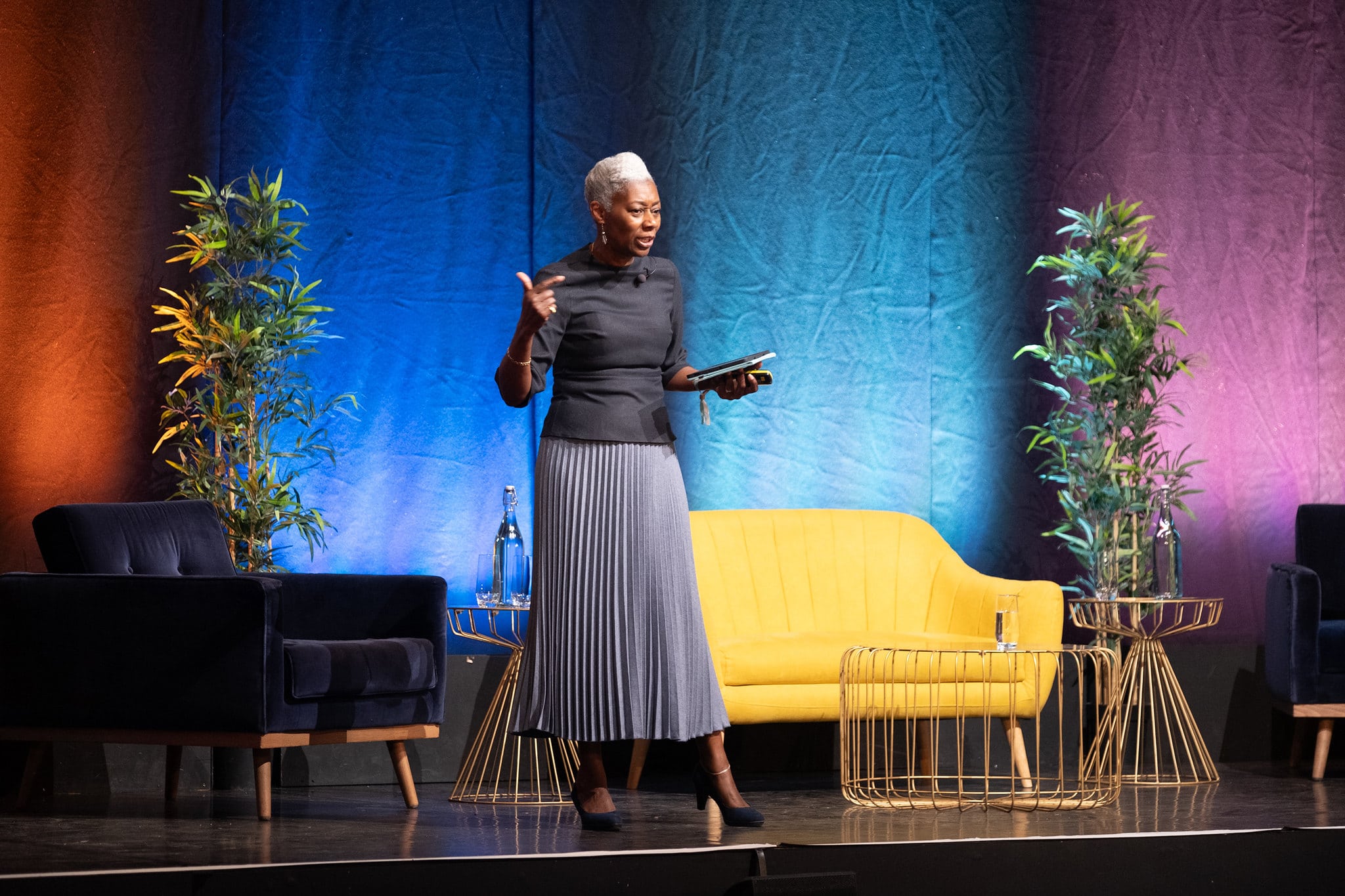
Throughout the two days, there were sessions on AI in education – a popular strand at this year’s event and a contentious topic that was widely chewed over in informal chats in between sessions. In a standing-room-only session entitled Chat GPT: Your Friend or Foe, Education Strategist, Mara Simmons explored the AI tool from the perspective of teachers, learners and schools, promoting some lively debate from the audience around the legal grey areas and whether policy should be in place before Chat GPT is used in classrooms. Mara’s outline of how it could help teachers with lesson creation and planning, certainly gave everyone food for thought. Later on, Alex Scharaschkin from AQA delivered a session on How AI Could Transform Educational Assessment touching on the benefits of automated testing, marking and quality assurance when it comes to teacher workload and student learning. He emphasised the need to understand the risks as well as opportunities when questioned about whether we should be positioning AI as a tool that will ‘liberate us’.
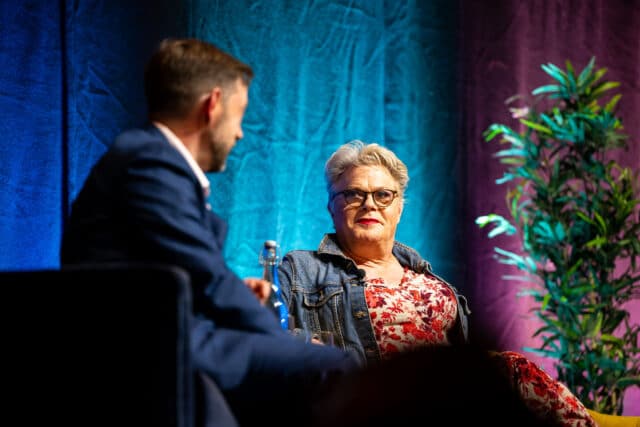
One of the most popular keynotes of the festival was the incomparable Eddie Izzard who spoke to a buzzing, excited crowd in the AQA Auditorium on Thursday. After giving us a whistle stop tour through her career including her current one-woman-show of Great Expectations and her political ambitions, she spoke about her overall vision for society and for her own life. A self-proclaimed ‘realistic idealist’ who advocates for the power of common sense, Eddie champions “making connections, not breaking connections” and being “brave and curious, not fearful and suspicious” — sentiments that resonated with many educators in the audience after a challenging couple of years.
On day two, Wellington’s own Naima Charlier, Director of Equality, Diversity, Inclusion and Social Responsibility spoke about Building a Culture of Belonging where equity, diversity, and inclusion go beyond the students and permeate every aspect of school life from the dress code and the environment to awareness of others’ lived experiences. Georgie Grubb, a teacher of MFL at Wellington College, joined Naima to speak in detail about the importance of representation in the materials presented to your class.
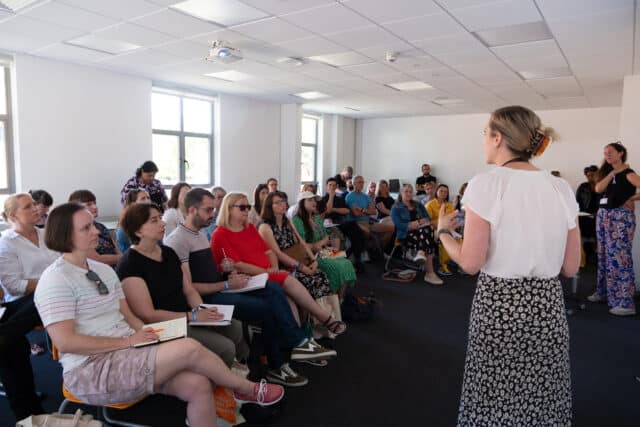
Research has demonstrated that when schools foster a strong sense of belonging, students experience higher levels of academic success and motivation. They also develop a stronger belief in their ability to succeed and appreciate the value of the work required. Naima said: “We are only humans and we don’t always get it right, but if our students can see that we care and that we are making the effort, they will be patient and kind with us if and when we make mistakes.”
Chris Packham was a much-anticipated highlight of the programme on Friday. In an entertaining and uniquely personal address, the BBC presenter revealed the struggles he faced during his time at school, university, and in his working life. Frequently misunderstood and bewildered, Chris explained how undiagnosed Autism had made every day a challenge saying; “I had a torrid and miserable time at school.” He observed that the autistic child at school is always fighting on two fronts: “trying to be educated, while also trying to be in the class.”
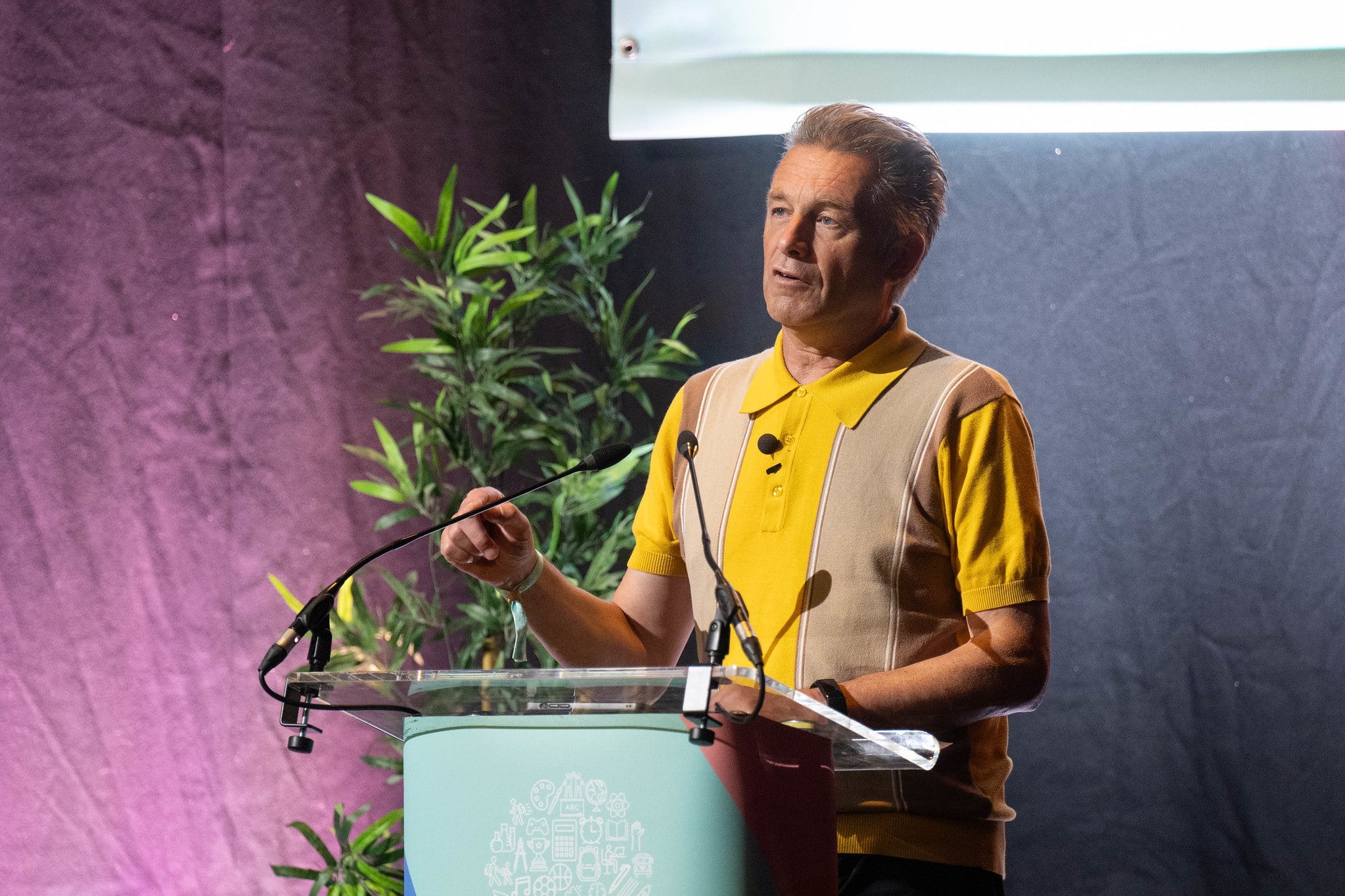
The takeaway message from his talk was “If you’ve met one autistic person, you’ve only met one autistic person – it is criminal to generalise” and he stressed the need for teachers – and
parents – “to study each child carefully, and try to work out what is the detail that is upsetting, or delighting, them: it is more important to focus on the capacities and abilities than the negatives.” Chris told a captivated audience that Punk Rock had been his saviour – “suddenly I had an identity, something normal I could belong to and be recognised by beyond my autism.” Let’s hope that his experience and words of wisdom go some way to prevent children in the future being similarly marginalised.
After a dynamic and informative two days, pipers and drummers from Gordon’s School in Surrey played out the end of the Festival in fittingly rousing style. Educators and exhibitors have already started to make plans for next year’s event which will return to Wellington College on 4-5 July 2024.
Find out more and book your tickets at: educationfest.co.uk






